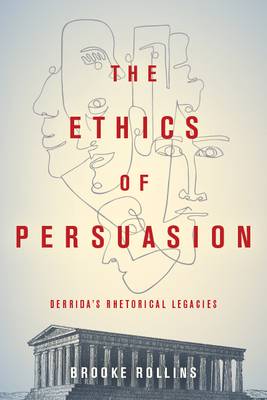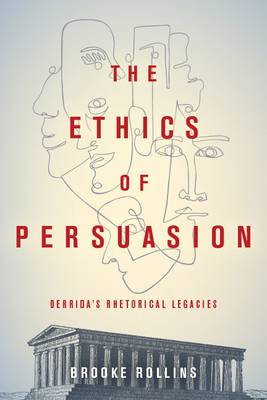
- Afhalen na 1 uur in een winkel met voorraad
- Gratis thuislevering in België vanaf € 30
- Ruim aanbod met 7 miljoen producten
- Afhalen na 1 uur in een winkel met voorraad
- Gratis thuislevering in België vanaf € 30
- Ruim aanbod met 7 miljoen producten
Zoeken
Omschrijving
In The Ethics of Persuasion: Derrida's Rhetorical Legacies, Brooke Rollins argues that some of the most forceful and utilitarian examples of persuasion involve significant ethical dimensions. Using the work of Jacques Derrida, she draws this ethical imperative out from a series of canonical rhetorical texts that have traditionally been understood as insistent or even guileful instances of persuasion. Her reconsideration of highly determined pieces by Gorgias, Lysias, Isocrates, and Plato encourages readers to inherit the rhetorical tradition differently, and it pinpoints the important rhetorical dimensions of Derrida's own work. Drawing on Derrida's (non)definition of ethics and his pointed accounts of performativity, Rollins argues that this vital ethical component of many ancient theories, practices, and pedagogies of persuasion has been undertheorized for more than two millennia. Through deconstructive readings of some of these texts, she shows us that we are not simply sovereign beings who both wield and guard against linguistic techniques of rule. Our persuasive endeavors, rather, are made possible by an ethics--an always prior encounter with otherness that interrupts self-presence.
Specificaties
Betrokkenen
- Auteur(s):
- Uitgeverij:
Inhoud
- Aantal bladzijden:
- 230
- Taal:
- Engels
- Reeks:
Eigenschappen
- Productcode (EAN):
- 9780814214244
- Verschijningsdatum:
- 13/04/2020
- Uitvoering:
- Hardcover
- Formaat:
- Genaaid
- Afmetingen:
- 152 mm x 229 mm
- Gewicht:
- 485 g

Alleen bij Standaard Boekhandel
+ 271 punten op je klantenkaart van Standaard Boekhandel
Beoordelingen
We publiceren alleen reviews die voldoen aan de voorwaarden voor reviews. Bekijk onze voorwaarden voor reviews.







